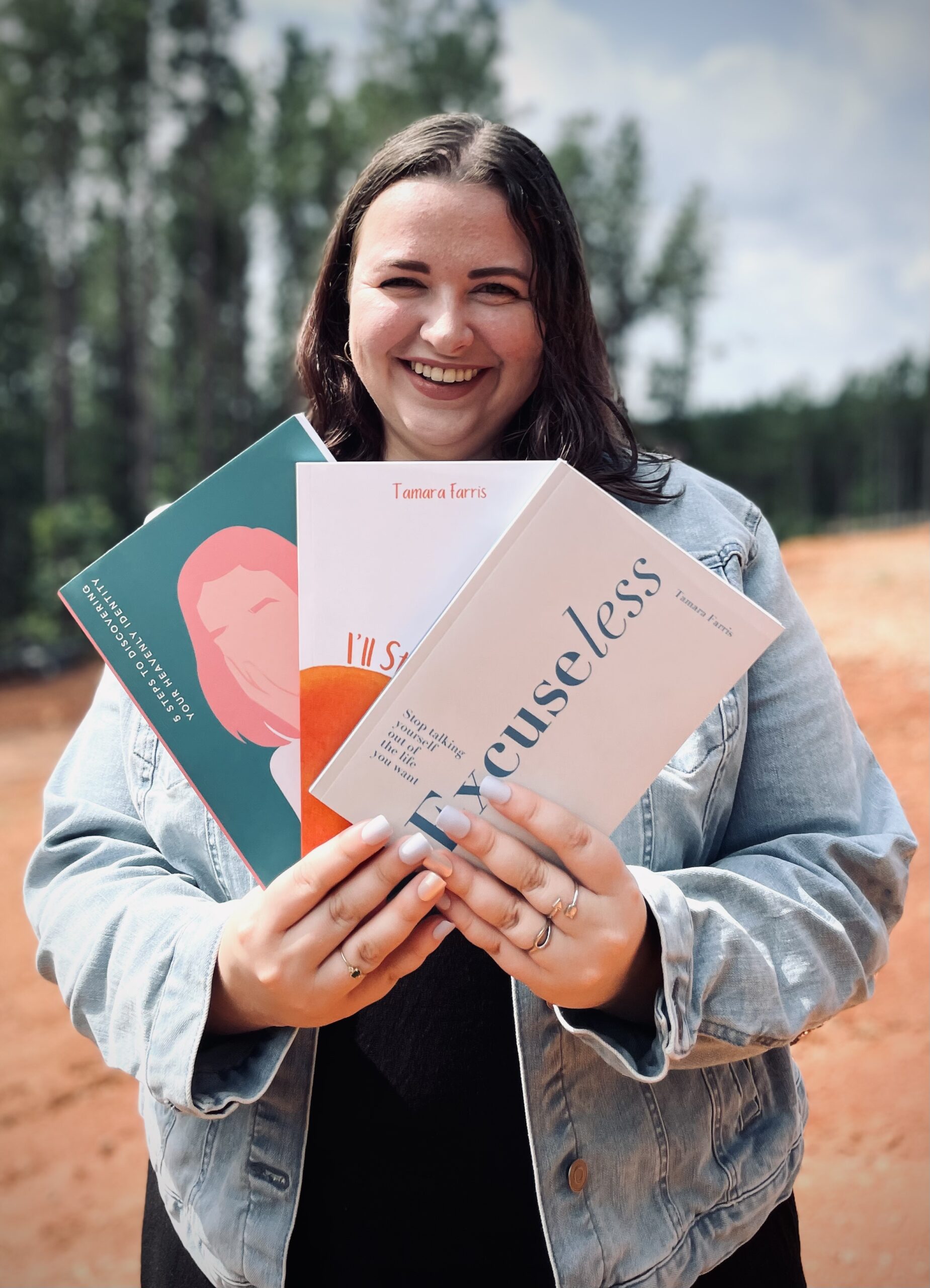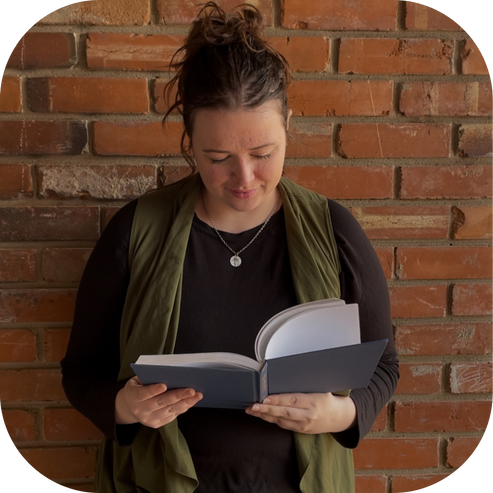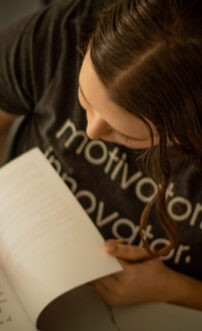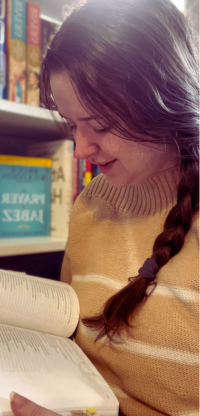10 Mistakes New Writers Make and How to Avoid Them

I had no idea how to write a book when I started writing The Kingdom Identity Crisis. I was just doing the best I could and running to YouTube when I needed help. While YouTube was informative I spent hours of searching and watching a couple dozen videos to get the answer to a single question. This was somewhat helpful and aside from the amount of time I spent finding answers I had no idea what to do about the questions I didn’t have yet or the questions I didn’t know to ask.
What I needed was a step by step guide to walk me through a process I knew nothing about. I didn’t end up finding that for my own books but I did write it for your books. (Your Book Writing Journey: A Practical Guide From Idea to Launch) Beyond these steps I found that when I had a question, encountered a problem, or made a mistake it was something that could have been avoided entirely if I’d just known.
These mistakes are not unique to me, they’re very common among first time writers just like you. Good news though, you don’t have to make them. You get to take the shortcut to success and skip these 10 mistakes that new writers make because you will know them and know how to avoid them.
Mistake #1: Not Planning
When you have a new idea for a book, you’re feeling inspired, it’s a lot easier to get into a flow while writing and just let the words lead the way. Either you’re on a roll and the book is pouring out of you or you mistakenly believe that planning will inhibit your creativity so you choose not to plan. Whatever your reason for not planning this mistake will come back to haunt you at some point.
Now, there are degrees of planning and I’m not saying you have to have an in-depth line by line outline of your entire book before you ever start writing. But there are a few questions you need to answer before you get started.
- Who is your reader?
- What is the primary topic/question that you will answer in this book?
- Where is your reader starting from?
- Where should your reader be when the book is over?
- What subtopics/questions do you need to answer along the way?
- What personal experiences do you want to include?
- What do you not want in the book?
Knowing your reader ahead of time will solve so many problems in the long run. Two other common mistakes on this list are related to knowing your reader so please don’t skip this step, it’s incredibly important. Once you know your reader you can better define your topic or question.

In my case I was writing my first book The Kingdom Identity Crisis for young women who didn’t know their identity. With that in mind I kept the book simple, to the point, and leaned more into personal stories to keep the book engaging.
If I were to write the same book again but for middle aged women who read a lot of self-help books I would lean more on data, statistics and evidence as well as reframe my personal experiences to be more relatable for my reader. This plays into the third question; “Where is your reader starting from?”
My second book I’ll Start Tomorrow was written for women who needed a quick start guide to overcome procrastination and achieve consistent productivity. Their starting point was perpetual procrastination and I imagined them being overloaded with information and proposed solutions to the point that they couldn’t take action.
Knowing where my reader was coming from I kept the book short and focused on actionability. I wanted the reader to see immediate improvement and reduce as much friction as I could for them.

Because my answer to question four was that by the time they’d finished reading the book I wanted them to feel confident and equipped enough to take immediate positive action I included plenty of action steps and simple starting points.
With my third book Excuseless my topic was a bit broader. I wanted to help the reader overcome common excuses and fears that kept them from achieving their dreams. This meant I needed to discuss each excuse and fear individually and plan to answer the question of “how do I overcome this?” for each one along the way. Being my third book and my own dream having been to become an author I wanted to include details of my own experiences with excuses and fears on the path to my dreams as well.
The final question you must answer when planning is what you don’t want in your book. Are there related topics or questions that you’d rather not include? Are there personal stories you don’t feel comfortable sharing? Making note of these now will save you time debating yourself or anyone else about adding them later.
Mistake #2: Removing Personality
In the pursuit of professionality it can be easy to scrub your manuscript clean of your personality. Of course there are some writing rules to keep your book coherent and readable but don’t forget that your voice is unique and your book should represent that.
Every year I read a book called The Crossroads of Should and Must by Elle Luna. She’s an artist and rather than simply write a book she approached her writing as her unique self and painted her book. There are pages that the text is in fact painted and others where typed text is overlaid on her art. The book is a work of art in itself and as a reader I get a clear picture of her unique personality.
This approach not only made the author more human and relatable to me as a reader it makes the book more memorable and helps it to stand out from others in its genre. So, when you’re writing your book don’t remove your personality, embrace it! Make your book a beautiful extension of yourself.
Become Undistractable
Learn to identify and overcome distractions, free your time, and enhance your focus.
Mistake #3: Editing While Writing
When you are writing nothing matters. Spelling, grammar, capitalization, handwriting, punctuation, word choice, sentence structure… All are irrelevant. I typically hand write my blog articles and books for the first draft and you should see the mess. My handwriting is near illegible to anyone but myself, half the words are spelled incorrectly, words are missing, and there are scribbles practically everywhere.
That’s okay. In my experience the messier the first draft the better the flow I’m in because I’m having to write so fast to keep up with myself.
When you’re writing you should not be editing in any way, shape or form. This will only slow you down and hinder your creative flow. There will be time to edit later I promise so don’t worry, just write.

Mistake #4: Overthinking
Similarly to editing while writing, spending too much time thinking things through while you’re trying to write will slow you down and hinder your writing process. Planning will help to avoid this mistake because you do most of the thinking ahead of the time when you plan. Another option for my major overthinking ladies (myself included) is to write it out by hand.
Electronic devices are an invitation to do more research or double check a definition or look up synonyms for an overused word or… If it’s just you, a pen, your plan, and some paper you reduce a lot of friction and cut out most of your options to indulge in overthinking. Plus, the more you write by hand the more natural and simple it will feel.
I’ve also found that when I write by hand the pen moves as fast as my thoughts whereas typing rarely does, this lag opens up opportunities to overthink or even slip into editing mode.

Mistake #5: Aiming for Perfection
I just recently wrote an article on this actually From Perfect to Productive: How Letting Go Transformed My Workflow. A flawless book should not be your goal. There is no way you could write an exhaustive book on any topic because even if you wrote everything there is to know right now, tomorrow there would be something new to say. All you can do is write the best book you can right now.
Keep in mind that you are writing a solution for someone and that the more time you spend trying to write the “perfect” book the longer your reader has to wait to solve their problem. It’s not often that someone is looking for an all knowing book on a subject, instead they are typically looking for the answer to a specific question and want the quickest and best solution they can get.
You have something to offer your reader; your unique experiences, perspective and voice are exactly what someone is waiting on. Don’t rob them because you’re afraid or unsure.
Mistake #6: Idealistic Expectations
Rarely does an author have the ideal conditions to be able to write their book start to finish. If you are waiting to start writing until you can devote 1 hour of interruption free time everyday to work on your book, odds are you’ll never start.
Instead you should set realistic expectations for yourself and your writing journey. Do you work full time? Are you a mother? Do you have family or roommates to work around? You know your unique situation so create your own unique writing schedule.
Maybe you only have time during your lunch break at work. Maybe you can take your lunch in your car so you don’t waste time going somewhere but can still have some privacy/solitude to write. Whatever your circumstances, expecting or waiting for the ideal writing session will only delay your writing and leave you disappointed.
Mistake #7: Counting Words
Obviously there are industry standards for length and specifically word counts when writing a book, but there are 2 things to keep in mind with these standards. Firstly, these standards are made up for the traditional publishing world. These numbers are chosen based on reader expectations, genre, publishing costs as well as other factors none of which have the final say on the success of your book. Even more so if you go the self-publishing route.
Second, they are standards and not rules so you don’t have to follow them if you don’t want to. You know your reader, you know what they are looking for and you get to choose how long your book will be. Don’t let a number determine how successful you feel or how proud you are of your book.


Journey Notes
Whether you’re writing your story, chasing your dream, or simply craving more peace and clarity—get weekly encouragement and resources sent straight to your inbox.
I will say all of this with one caveat. I tend to write very succinctly and would categorize myself as an “under-writer” so I do pay some attention to my book’s word count simply because I try to push myself to write more and not leave the reader feeling as though the book was missing something. This will not be the case for every writer and this is overridden when my reader would need or prefer something shorter as was the case with I’ll Start Tomorrow.
Mistake #8: Not Knowing the Process
As a first time writer you typically don’t know the step-by-step process of writing a book and can either stage or set unrealistic expectations on your timeline to publishing. Taking a little time during the planning stage to map out the process and set realistic expectations and deadlines will save you a lot of frustration and disappointment in the long run. I can’t give you a “standard” or typical timeline for your book writing process because your situation is unique to you and every writer has different strengths. It may take me 3 weeks to outline my book and only 2 months to write the first draft where it takes you 1 week to outline and 6 months to write. Every writer is different and in my experience every book is different as well.
So be patient and take the process one step at a time. It will be worth it.

Mistake #9: Under/Over Explaining
This mistake plays into knowing your reader. If you don’t know where your reader is starting from you won’t know how best to explain your solution/topic. Is your reader a beginner? Okay, they’ll most likely need a little more explanation and detail. Is your reader well acquainted with the subject? Maybe less explanation and more application will serve them better.
Be sure to have a clear understanding of how best to explain to your reader to avoid redundancy and confusion. Another great way to ensure your reader will understand your book is to utilize beta-readers. Share your book with a handful of test readers that match your target reader and get their feedback. This is done before you publish and before you finalize your book so you can still make changes and edits based on your beta-readers feedback.
Mistake #10: No Clear Audience
The final mistake new writers make is not defining an audience for their book. Sometimes the book’s topic is “universal” or the solution applies to “everyone” so the writer writes it for everyone. The problem is that when you write for everyone you’re actually writing for no one.
Your audience doesn’t have to be insanely specific: mid 20’s christian women who live in the midwest and want to be professional dancers. That’s a bit too specific unless your book revolves around midwest professional female dancers. Defining your audience comes down to answering this question: Who is most in need of this answer/solution?
If you’re writing a book on raising confident daughters, you will most likely want to target people who are already parents of daughters. A book on syncing your lifestyle with your menstrual cycle should probably be targeted at women and a book on becoming a successful work from home mom should be targeted at moms. This may seem basic but it is incredibly common for writers to write their book then assume whoever needs it will read it.
The beautiful thing is that even after you define your audience anyone can still read it! All of my published books are for women but I’ve had several male readers who love them and had a lot of breakthroughs because of them. I have friends who wrote a book on Praying for Children which I purchased even though I don’t have children. I read it and have since put the principles into practice in ways beyond praying for children.
Defining your audience may feel like excluding potential readers but ultimately it’s about writing the best book you can for the reader who needs your book the most.

Further Mistakes
These are the top 10 mistakes new writers make and now you won’t make them. But, what about other mistakes? Oh trust me, there will be plenty more mistakes made along the way. That’s part of the process.
The real test is if you will learn from those mistakes or if you will get discouraged and give up. No misstep should cause you to quit writing. No mistake you could ever make should be the final word on your writing journey. The world is waiting for your book, so get writing!



